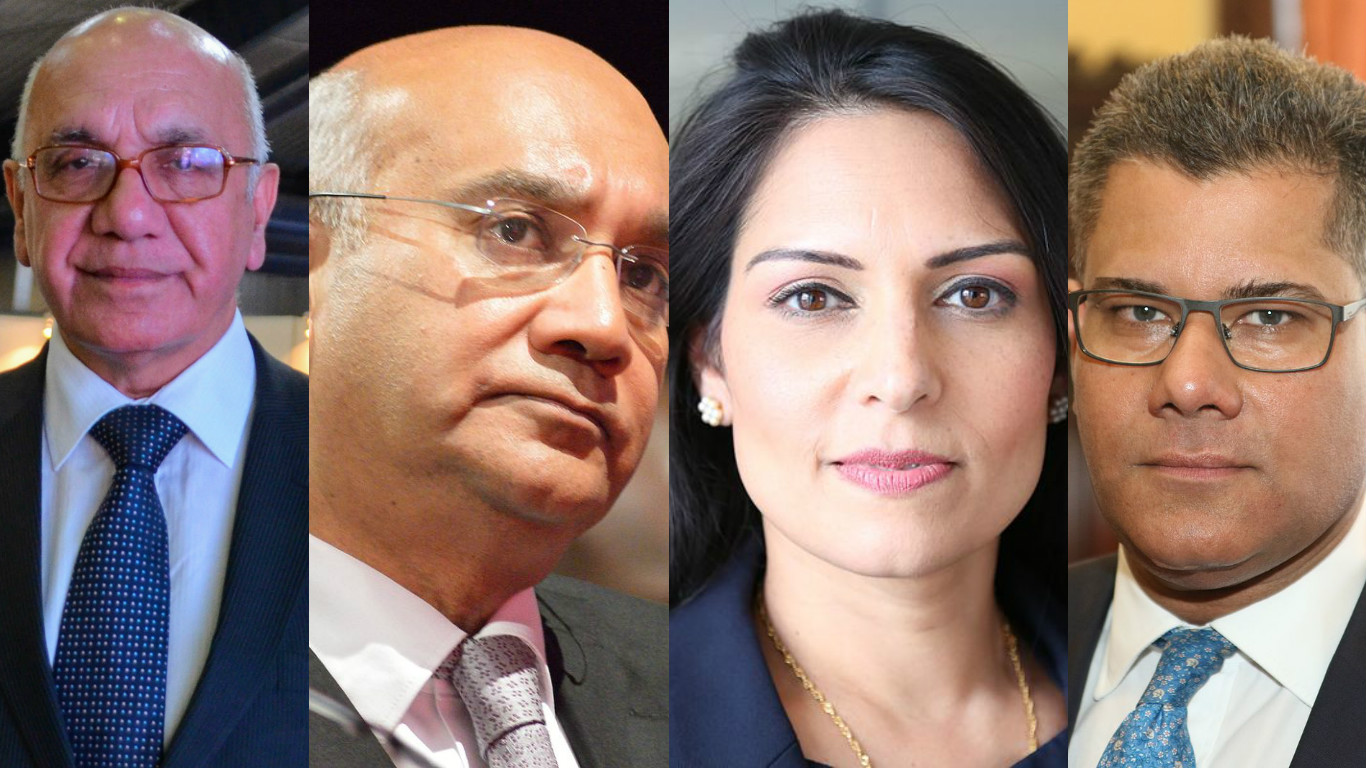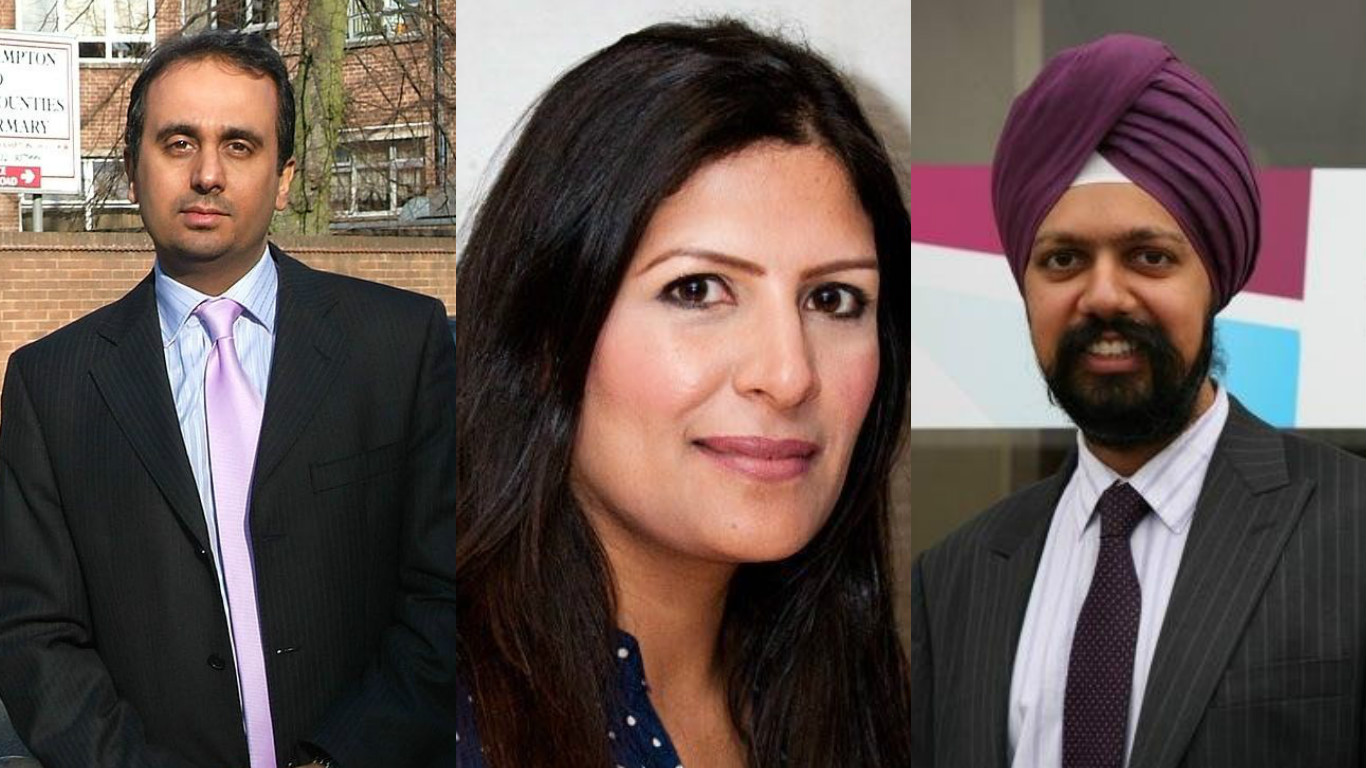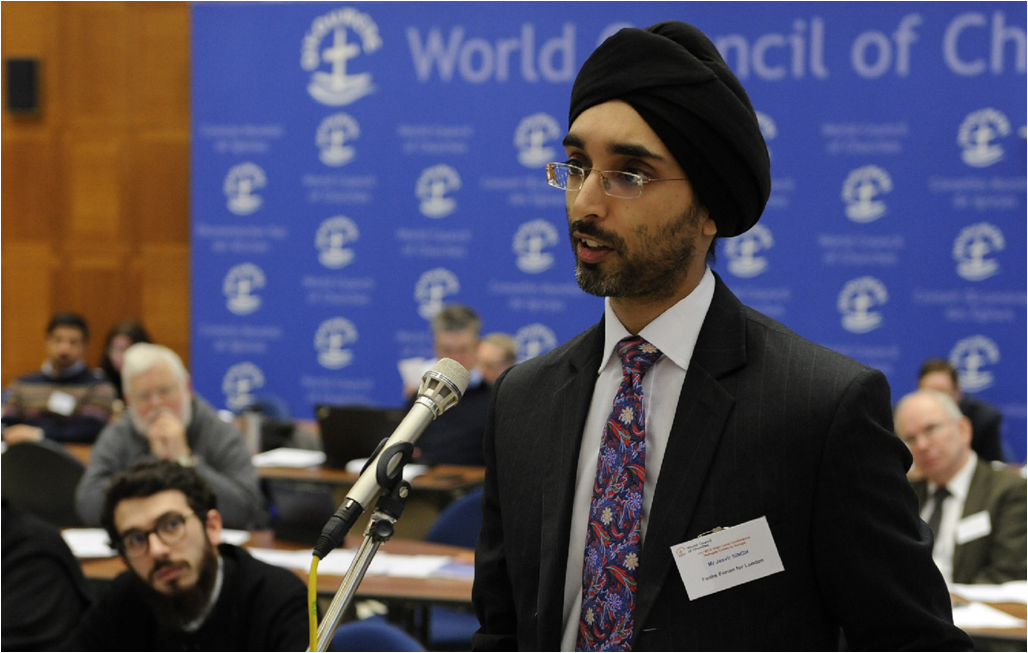The 2017 snap poll in the United Kingdom boasts of an impressive number of 56 Indian-origin candidates contesting the elections. Defending comfortable margins are the Indian-origin veterans, including Virendra Sharma, Priti Patel, Keith Vaz, Alok Sharma and Shailesh Vara, all well-known MPs with sizeable majorities.
A record number of ten Indian-origin candidates were elected to the British Parliament in 2015.
Candidates to watch on the night are Paul Uppal, 49, Conservative nominee in Wolverhampton South West. He needs to overturn the 2015 majority of just 801 votes to return to the House of Commons as MP.
Another Sikh with chances of winning is Kuldip Singh Sahota, 66, a Labour local councillor contesting in Telford.
It will be Labour candidate Tanmanjeet Singh Dhesi's first time as MP if he manages to keep the Slough seat, held by Labour's Fiona Mactaggart since 1997.
A win in Birmingham Edgbaston will make Labour's Preet Preet Kaur Gill the first Sikh woman MP in the House.
Among interesting debuts is Rohit Dasgupta's, who moved to the UK in 2009 from his native Kolkata. The Labour nominee is running in East Hampshire, a Tory safe seat.
The youngest Indian-origin candidate, Arran Rangi, 18, standing for the Green Party in Ashfield, is appearing for his A-level exam at 9 am on Friday.
Rakib Ehsan at Royal Holloway University who specialises in ethnic minority political attitudes, said that for British Indians, it's a two-party race between Labour and Tories.
Within the British Asian population, Indians are more economically successful than Pakistanis and Bangladeshis and are more likely to be professionals. Thus, the Conservatives appeal to them more, said Ehsan. British-Indians tended to vote Labour in the 1960s and 70s because of Labour's reputation for anti-discrimination and bringing out the Race Relations Act, but as Indians became economically better off, they have tended to vote Conservative, as in 2015.
British-Indians are able to swing the vote in many marginal seats, he said, a view echoed by Jasvir Singh, founding chair of City Sikhs. "The ethnic minority vote is greater than the majority's in 50 of the most marginal seats and could make all the difference," Singh said.Jasvir Singh, founding chair of City Sikhs. "The ethnic minority vote is greater than the majority's in 50 of the most marginal seats and could make all the difference," Singh said.
Number of Indian-origin nominees (party-wise):
Labour-16
Liberal Democrats-15
Conservative-13
UKIP-5
Green Party-5
Independents-2





